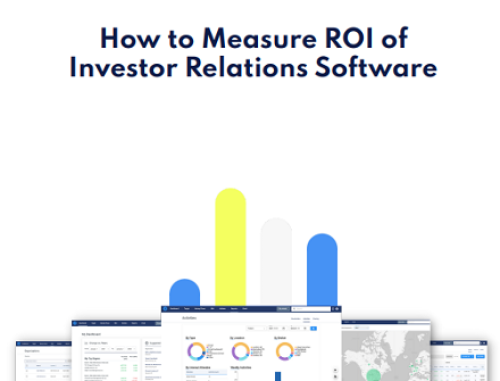Online blogging network hits 1 mn member mark and sees proactive submissions from Wal-Mart and ITT
David Jackson, founder of the online financial blog Seeking Alpha, may finally crack the code on how to make money by giving away content.
In the process, he is also creating an emerging Web 2.0 financial market discussion forum – and IROs are increasingly paying attention.
The former Morgan Stanley telecoms analyst shared his thoughts with IR Magazine as the site crosses a significant milestone, hitting 1 mn registered users from a total of 5 mn to 7 mn monthly visitors.
Jackson’s formula? Create a platform where a core of 900 savvy investors and independent analysts each day share 250 posts of opinion and analysis, even paying contributors for exclusive content based on how many page views their postings attract.
Moderate that content to eliminate penny stock pumpers, ensure editorial quality and originality. Attract 4 mn-5 mn unique viewers per month, with demographics even the Wall Street Journal, Bloomberg and Barron’s might envy – active market participants, high incomes, heavy stock ownership – and charge financial product advertisers accordingly.
The site has been adding about 2,000 registered user members every market day, and they tend to be much more engaged than non-registered users, Jackson says. Registered users visit the site more often, view more pages and ‘are usually serious investors,’ he adds.
With 13.9 percent of Seeking Alpha’s readership composed of fund managers, analysts and other finance professionals according to online audience measurement surveys cited on the site, Seeking Alpha claims it beats all other finance sites in attracting high-value readers.
Jackson launched Seeking Alpha in 2004 with his own bootstrap funding. In 2006 he attracted $2.5 mn from VC Benchmark Capital and in 2009 did a $7 mn second round that included Accel and DAG Ventures.
While he won’t disclose his P&L, he says the company lost money in 2011 but is ‘forecasting that we’ll be profitable in 2012.’
Forum for IROs
Jackson is proud of the fact that authors, who have to disclose any positions they hold, express a strong point of view on a stock, sector or market. ‘I think having skin in the game is intrinsically a good thing,’ he says.
‘I don’t think investors are bullish on stocks because they own them. They own them because they have conviction.’
Jackson also defends his policy of allowing authors anonymity if they request it. Authors sign a compliance agreement that makes clear their identity – known to Seeking Alpha – will be passed on in the event of an investigation by market regulators.
While companies have responded to negative commentary by appearing on Seeking Alpha via press releases, Jackson encourages public company executives and IROs to engage directly with investors on the site.
For example, Netflix CEO Reed Hastings publicly refuted a posting from hedge fund manager Whitney Tilson explaining why he was shorting the stock in 2010.
On the proactive front, within the past year on the site Wal-Mart’s CFO Charles Holley summarized the company’s annual analyst strategy briefing and ITT’s CEO explained its planned break-up into three separate entities.
In addition, Jackson says IROs who are registered on the site have been communicating directly with authors who write about their company, industry or sector.
He points to the active discussion on dividend-paying stocks that creates a natural audience for many companies in that category as an example where IROs might find receptive investors.
‘Our goal is simply to help people invest better, by presenting them with valuable insight and information, allowing them to choose between different perspectives and empowering them to discuss ideas with other smart investors,’ he concludes.










